5 times the U.S. government interfered in the world of sports
The results are about as mixed as you would expect
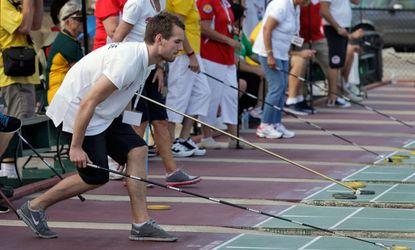

The cutthroat sport of shuffleboard took over St. Petersburg, Fla., this week for the 32nd International Shuffleboard Association World Championships.
Notably absent? The Russians, proving that Americans weren't the only ones affected by the government shutdown. A closed American embassy meant no processed visas, which meant no gold medals for the countrymen credited — along with hipsters, in a pretty weird example of cross-cultural cooperation — with "driving the new era of competitive shuffleboard," according to Deadspin.
This is not the first time that the U.S. government — either by inaction or action — has tipped the playing field. At both the state and federal levels, there are plenty of instances in which politicians have decided to get in the game. Here, five that stand out:
Subscribe to The Week
Escape your echo chamber. Get the facts behind the news, plus analysis from multiple perspectives.

Sign up for The Week's Free Newsletters
From our morning news briefing to a weekly Good News Newsletter, get the best of The Week delivered directly to your inbox.
From our morning news briefing to a weekly Good News Newsletter, get the best of The Week delivered directly to your inbox.
1. Theodore Roosevelt saves football
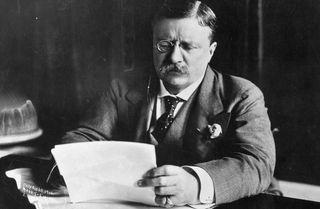
President Roosevelt's savvy foreign relations skills had already kicked off construction of the Panama Canal in 1903, so perhaps he was looking for a more America-centric accomplishment on which to hang his presidential hat.
Or maybe Teddy just liked football. Either way, the nation's 26th president stepped in to combat a drive by Harvard's president, Charles W. Eliot, to abolish the game, gathering a contingent of college football's most influential men in 1905 to convince them that football was worth saving.
It should be noted that the 1905 version of football bears little resemblance to the sport you now watch on the weekends. The National Football League didn't exist yet, and the college game was characterized by mass formations, gang tackling, and rules regarded more as suggestions to be ignored.
Sign up for Today's Best Articles in your inbox
A free daily email with the biggest news stories of the day – and the best features from TheWeek.com
Roosevelt's meetings led to a crackdown on the violence front (today's head-injury debate notwithstanding) and an extension of yards needed for a first down, from five to 10. And — hello, NFL! — Roosevelt's meetings also put the forward pass in the rule book. 'Nuff said.
2. No Olympics for you!
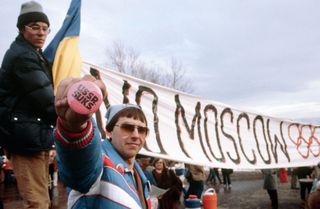
In protest of the Soviet Union's occupation of Afghanistan, President Jimmy Carter decided to keep America's athletes home from the 1980 Summer Olympics in Moscow.
"As citizens, it is an easy decision to make — support the president," one benched American said. "As athletes, it is a difficult decision."
It was also a decision that did little to sway the Soviet Union, which remained in Afghanistan for nearly another decade.
3. The feds lay down the law
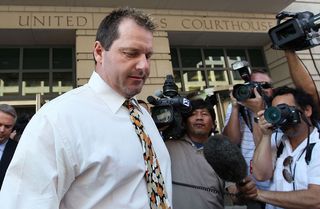
Major League Baseball's league-wide drug-testing began in 2003 (although steroids had been prohibited since 1991). It ushered in a dark time for the sport, with names like Bonds, McGwire, and Sosa losing much of their on-field luster due to behind-closed-doors boosting.
It also ushered in the feds.
The Bay Area Laboratory Co-Operative (BALCO) investigation turned up tons of big names, and some of those were subpoenaed to testify on whether they had used performance-enhancing drugs provided by the company. Barry Bonds, Jason Giambi, Gary Sheffield, and others made the list, with Bonds and Roger Clemens eventually being indicted by a grand jury on charges of perjury (Clemens was re-tried and found not guilty in 2012).
4. Title IX blues

Ah, Title IX. Everyone agrees that the 1972 law had a major impact on women's sports and women's equality in general, opening up sports that were long the exclusive precincts of men.
But who would have thought that more than 40 years after its inception, the law would be pitting female athletes against each other?
The U.S. 2nd Circuit Court of Appeals in 2012 ruled that competitive cheerleading was not a sport, preventing Quinnipiac University from using the cheerleading squad to complete gender-equality requirements. The case had originally been brought by the school's volleyball coach, who was miffed that the volleyball program had been canceled in favor of cheerleading.
5. Gamers Unite
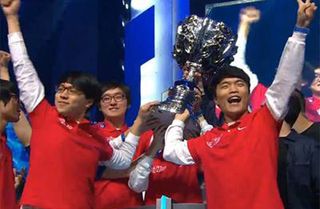
Are you really good at video games, specifically League of Legends? Do you live somewhere other than the United States?
Good news: You might be eligible for an "Internationally Recognized Athlete" visa — or a "p-1A" — to come to the U.S. for up to five years as a professional athlete.
Seriously, here's how Riot Games spokesperson Chris Kramer explained it:
In its ongoing efforts to help elevate e-sports, Riot Games has recently worked with the U.S. federal government to expand the official definition of athletes to include e-sports competitors, officially recognizing e-sports as professional athletes for visa applications. Riot has always maintained that e-sports competitors operate with the same level of training and specialization as athletes, and the company was very pleased that the government agreed. [TechNewsWorld]
Sarah Eberspacher is an associate editor at TheWeek.com. She has previously worked as a sports reporter at The Livingston County Daily Press & Argus and The Arizona Republic. She graduated from Northwestern University's Medill School of Journalism.
-
 The best homes of the year
The best homes of the yearFeature Featuring a grand turret entrance in New York and built-in glass elevator in Arizona
By The Week Staff Published
-
 Nordstrom family, investor to take retail chain private
Nordstrom family, investor to take retail chain privateSpeed Read The business will be acquired by members of the family and El Puerto de Liverpool, a Mexican real estate company
By Peter Weber, The Week US Published
-
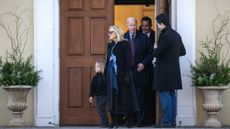 Biden commutes most federal death sentences
Biden commutes most federal death sentencesSpeed Read The president downgraded the punishment of 37 of 40 prisoners on death row to life in prison without parole
By Peter Weber, The Week US Published